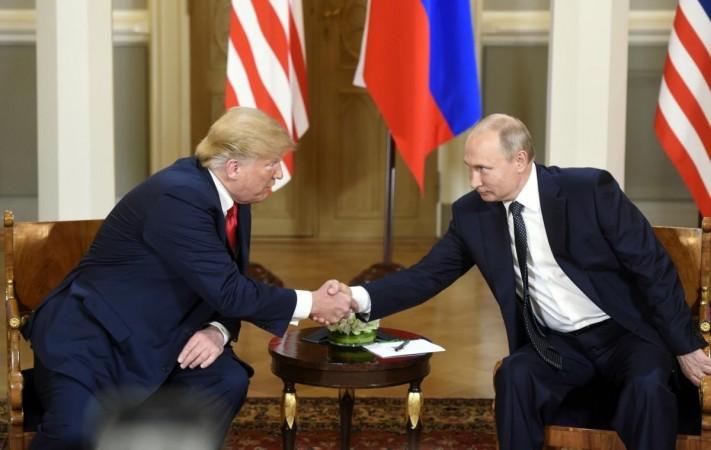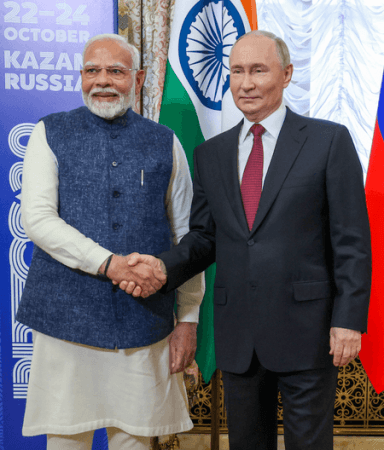
The announcement of Russian President Vladimir Putin's upcoming visit to India has captured global attention, marking his first trip since the Russia-Ukraine conflict began. National Security Advisor Ajit Doval, currently in Russia, confirmed the visit, though specific dates are still being finalized.
This visit is particularly significant as it coincides with the United States imposing a 50% tariff on India for its continued purchase of Russian oil. Former U.S. President Donald Trump has criticized India, accusing it of financing Russia's military efforts through these oil transactions.
India's relationship with Russia has been longstanding and robust, even as it has strengthened ties with the United States through collaborations like the Quad. Despite these developments, New Delhi maintains that its relationship with Moscow remains steadfast.
The potential revival of the Russia-India-China (RIC) Troika is a key aspect of this visit. Although the agenda remains undisclosed, the possibility of rekindling this trilateral dialogue is seen as a strategic move to counterbalance Western influence, particularly as all three nations face mounting economic pressures under Trump's administration.
Prime Minister Narendra Modi's upcoming visit to China for the Shanghai Cooperation Summit (SCO) on August 31 further underscores the potential for recalibrating the RIC alliance. A successful meeting with Chinese President Xi Jinping could solidify the RIC as a formidable force against U.S. and European pressures. Russia, eager to revive the RIC, has been advocating for its resurgence to reposition itself at the heart of Eurasian diplomacy.

Strategic Alliances and Economic Pressures
India's stance on the U.S. tariffs is clear: it will not succumb to pressure. This defiance is exemplified by NSA Doval's visit to Russia and the anticipated visit of President Putin to India. The Trump administration's imposition of tariffs on multiple countries, including India and China, has created a common ground for the RIC nations to unite against these economic threats. The tariffs and secondary sanctions pose a significant challenge to all three countries, potentially strengthening their resolve to revive the Troika.
Historically, India has distanced itself from the RIC due to border tensions with China. However, the rapidly changing global scenario may prompt both India and China to reconsider this grouping. India's foreign policy has always been characterized by its independence, avoiding alignment with either the U.S. or China. The RIC framework offers India a platform to collaborate with Russia and China on specific issues while maintaining its strategic autonomy.
Energy needs are a critical factor for India, with both Russia and China playing vital roles in this sector. The RIC alliance could provide India with a buffer against Western pressures, allowing it to navigate the complex geopolitical landscape more effectively. The RIC format, initiated in the 1990s by former Russian Prime Minister Yevgeny Primakov, was envisioned as a counterbalance to Western dominance. Despite 20 ministerial-level meetings, the format lost momentum following the 2020 Galwan Valley incident.
The current global realignments echo historical patterns of shifting alliances and economic pressures. The Cold War era, for instance, saw similar strategic pivots as nations navigated the bipolar world order. The Non-Aligned Movement, which India was a part of, sought to maintain independence from both the U.S. and Soviet spheres of influence. Today, the RIC alliance could serve a similar purpose, allowing India to balance its relationships with major powers while safeguarding its national interests.
The additional news context provides further insight into the broader implications of these developments. The U.S. tariffs, which have doubled to 50% on Indian imports, are part of a broader strategy by Trump to exert economic pressure on nations maintaining trade ties with Russia. This move has placed India among the most severely impacted nations, alongside Brazil, which faces similar tariff hikes. The European Union, Japan, and South Korea are also grappling with increased tariffs, despite recent negotiations with Washington.
India's response to these tariffs has been firm, with officials emphasizing the country's strategic autonomy and the importance of safeguarding its national interests. Commerce Minister Piyush Goyal highlighted India's longstanding relationship with Russia, stressing the need to secure its energy needs. He also pointed out the significant dependence of the U.S. on Indian goods and services, particularly in the technology sector, suggesting that the tariffs could inadvertently push India closer to Russia and China.

















